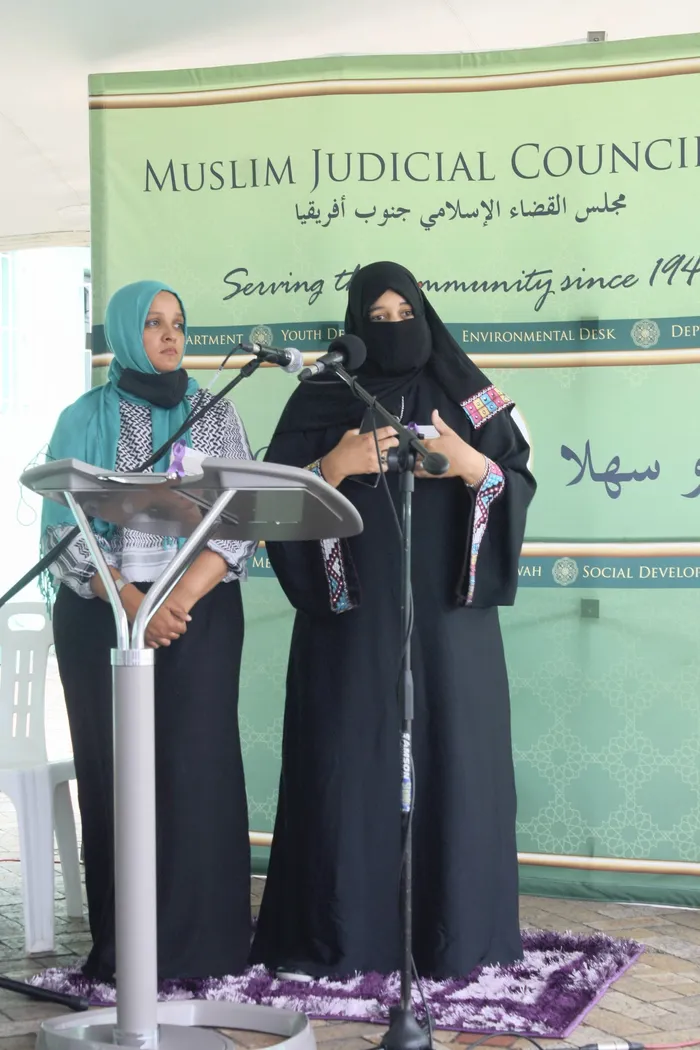‘Do not be afraid to speak out’

Paintings by artists Zaitoon Ebrahim and Nasigha Salie willbe sold to raise money for groups tackling gender violence.

Trauma doesn’t see gender or religion, author Lynn Kerchhoff said at a Muslim Judicial Council (MJC) function last week.
Ms Kerchhoff and Dr Veronique Genniker, director at the Pearson Marang Education Trust, were among the speakers at the function on Thursday December 10.
Ms Kerchhoff’s book, My Shack – a story of hope, tells of her recovery after being sexually assaulted as a little girl.
“I am no longer a victim or a survivor, I am an overcomer,” she said. “If we are standing, and if we are breathing, it means we can make a difference. Thank you for the spirit that exists here. Trauma doesn’t see religion or gender. We meet as one here.”
Dr Genniker surprised MJC president Sheikh Irafaan Abrahams when she announced that he had led her to embrace Islam 38 years ago.
“I was a 17-year-old drop-out, pregnant, and had been sexually abused from the age of 5 to 12, and then raped at the age of 15. I felt so much shame, but Sheikh Irafaan and his wife, Mualima Faatimah Abrahams, gently helped me when I shared my story.
“I decided then to embrace Islam, and they guided me. I believe for as long as there is life in you, there is hope. From a 17-year-old drop-out who was pregnant, I hold a PhD (degree) today.”
Artists Zaitoon Ebrahim and Nasigha Salie also exhibited their paintings that will be sold to raise money to support groups helping victims of gender violence.
Ms Ebrahim said efforts to end gender violence should last all year.
“Our art is to create hope. I didn’t go through the trauma, but I am not okay. As a woman, I am constantly looking over my shoulder and looking out for my children.”
One of Ms Salie’s pieces depicts a rose with falling petals.
“When I first started it, I admired the rose, and then I realised that when one ruffles any flower, it is going to fall apart.
“The rose losing its petals symbolises the loss of trust, the loss of love and the loss of life whenever somebody is being abused,” Ms Salie said.
Sheikh Ebrahim Gabriel said women had been abused for far too long.
“What’s the use of these programmes when things don’t change? We need action. The time has come for us to defend our women and children.”
Sheikh Nurghaan Singh, from the MJC’s social development department, said an imam was often the first person victims of gender violence reached out to.
“An imam must inform her of her rights as a Muslim woman and that of the South African law. As families, we must start to intervene if you know your daughter is being abused. Intervening is different to interfering.
“No one deserves to be violated in any way. Nowhere in Islam is it allowed to abuse a woman.
“ Don’t be afraid to speak out. The entire message of Islam is mercy.”